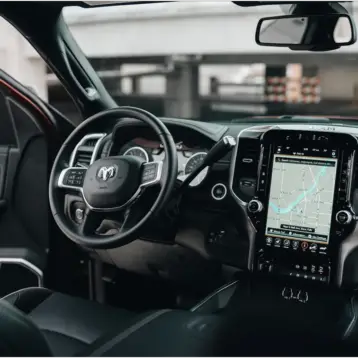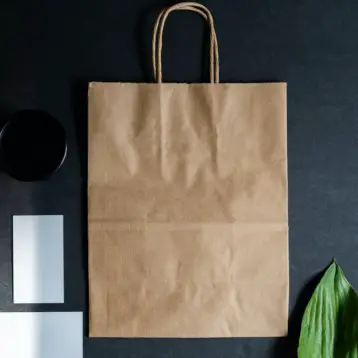Travel security as a digital nomad is a crucial part of the job. Being away from home and in unfamiliar places puts you in a more vulnerable position than you might initially realize. Here are some practical ways you can secure your safety and help prevent the theft of items and data.

Secure Extra Luggage and Gear
Most digital nomads travel light. However, if you plan on staying in one location for some time, it isn’t feasible to lug your things around everywhere you go. Especially if you have work to do to support yourself. You cannot focus on work and keep an eye on your stuff at the same time. For example, suppose you’re working on a project in a coffee shop in the Big Apple. There’s a good chance your bag could be stolen if you aren’t careful. But services like Radical Storage NYC will let you securely store your luggage and bags from as little as $4.90 per day.
Never Use Public Wi-Fi
Public Wi-Fi is a great service for quickly checking things. However, any cybersecurity expert will tell you that it is highly insecure. A hacker can intercept data between your device and the public Wi-Fi system. And if your data isn’t encrypted, it is easily stolen since it can be sent to the hacker’s device rather than the connection point. Following this, it’s likely your data will be used for ID fraud or sold on the dark web. Further, you could inadvertently send confidential client data to a hacker for any projects you are working on as you upload them to cloud storage.
Use a VPN for Security as a Digital Nomad
If you are going to use free public Wi-Fi, such as in coffee shops, then always use a VPN. A VPN app like NordVPN will encrypt your data over an internet connection. So even if the connection is very insecure, any data that gets intercepted is useless to a hacker. And they won’t even know what it is. With a VPN, all data transmitted and received is encrypted, so you never have to worry about being hacked. Given that a VPN costs relatively little, there’s really no excuse for not using one, especially if you often handle sensitive or personal data.
Invest in Encrypted Devices or Software
Of course, it isn’t only downloaded and uploaded data you need to worry about. Any data is at risk of being stolen. Such data includes information on USB drives, your laptop hard disks, and mobile device data. Fortunately, you can purchase pre-encrypted USB drives and install encryption software like BitDefender. You should also consider using a cold wallet to store any cryptocurrency assets rather than leaving them in your online hot wallet. A cold wallet is an encrypted USB device that cannot be hacked because it’s off the blockchain.
Secure Valuables on Your Person
You can do almost everything digitally these days. But there are specific physical items you need access to as a digital nomad. Accommodation and car keys, credit cards, and critical documents like your passport are perfect examples. And these are all prime targets for would-be thieves. Therefore, you need to secure them on your person at all times. Keychain wallets are one way to prevent pickpocketing. But you should also wear clothing with zips and inside pockets. You can even install tiny alarms to items that activate when pulled.
Source Safe Accommodation
Finding a safe place to stay when traveling is essential for your welfare. There are apps for finding accommodation, so always read reviews and comments to find the safest places. Further, you could consider the following alternatives when moving around a country:
- Look for cheap yet safe hostels using accredited accommodation websites.
- Consider camping if you have the right gear.
- Find cheaper budget hotels if you have a little more cash available.
- Rent a camper or a van so you can keep moving to see more of a country.
- Plan a stay with trusted friends or family if they are near your location.
Not all hostels are rancid and dilapidated. Many are safe and provide everything you need for very low prices. Camping and RV driving offers low-cost ways to experience the outdoors or visit family. You can even rent them at a cheaper price wherever you are. For example, if want to explore California, you can get there and rent an RV in Los Angeles. This way, you will be able to travel and explore the Golden State with your whole family. Or you could use safer budget hotel chains if you earn income from your work.
Buy a High-Quality Backpack
Moving around so much requires a quality backpack. For comfort alone, this is something you shouldn’t skimp on. But your backpack also needs to be secure and rugged. Quality backpacks are made of durable materials such as rip-stop and waterproof nylon. But you also need a pack with space for essentials, secure pockets for valuables, and a secure pouch for your laptop or tablet. The Tortuga Outbreaker is a great example. It’s roomy, rugged, and carry-on friendly for coaches and planes. Also, consider additional padlocks for securing valuables like cash.
Use Digital Currencies Over Cards and Cash
Even the best backpack isn’t impervious to criminals, and you could find your cash or cards have been stolen. A good tip is to keep cash to a minimum when traveling. You might need it for buying food from street vendors or smaller shops. And you can always get more from an ATM. Fortunately, most places now accept payment by digital currencies and wallets such as Google Pay, Apple Pay, and PayPal. And more and more larger chains are beginning to accept crypto payments using wallets such as Coinbase. These are far more secure than cash and cards.
Use Trackers for Better Security as a Digital Nomad
You can do all you can to secure your valuables and even limit your cash by using digital payments. But digital payments and your work depend on electronic devices. And many of these electronic devices, such as phones and tablets, are highly sought after by criminals. For example, the UK alone sees over 300,000 smartphone thefts per year. And this is considered a safe country. So, figures could be much higher in areas such as Eastern Europe. Fortunately, you can use trackers such as Apple ID or Windows’ Find My Device to track your valuables.
Keep on the Right Side of the Law
Depending on where you visit, the laws of a country could be extremely different from your home location. Most modern and developed nations cover the same base laws. But some governments have strict rules governing all aspects of life. For example, you could be arrested for trying to access certain websites in China, such as Facebook. Additionally, you are breaking the law if you work (even digitally) in any country without the proper visa. And the justice systems of many nations are far harsher than that of countries like the UK and the USA.
Find Your Nation’s Embassy
Anything can go wrong anytime, so you must stay prepared for an evacuation. A “Go Bag” with essential supplies is an excellent way to keep ahead of an emergency. But you might require transport to a safe place. And this can happen for many reasons, such as invasion, severe emergencies such as flooding, or the threat of unjust imprisonment. And the only people who can help are located at your nation’s embassy. Therefore, you must know where it is, how you can get there safely, and the numbers you need to call in the event that the worst happens.
Summary
Travel security as a digital nomad is always guaranteed. Exposure to unfamiliar places, laws, and activities means you are vulnerable. However, you can ensure your safety by storing your valuables, finding safe accommodation, and always knowing how to contact your embassy.










